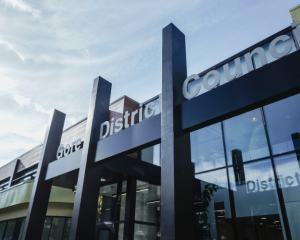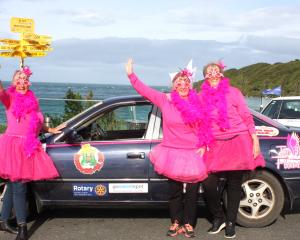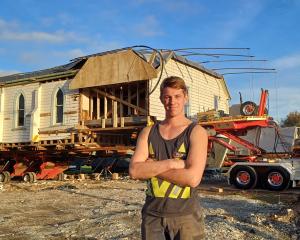"Many areas" of Otago and Southland have after-hours medical care that is financially unsustainable for general practitioners and unfair to patients, according to a report released by the Southern Primary Health Organisation yesterday.
The "After Hours Initiative Report" by independent facilitator Valerie Meyer, of Queenstown, says after hours care "in many areas is burdening the current workforce" and was not financially sustainable, practices "often providing after-hours care at a financial loss".
Also, GPs were often "unable to continue with the physical demands of delivering after-hours [care] or do not want to work as it is seen as unpaid".
And Ms Meyer's report says patients "are not getting a fair deal" because after-hours fees are expensive and not all patients had access to free emergency department hospital services.
The report was prepared after locality meetings with GPs in Oamaru, Dunedin, Central Otago, Clutha, Eastern Southland, Invercargill and Western Southland.
It has yet to be considered by the PHO's advisory groups and clinical review subcommittee.
The report does not contain specific information about the localities or statistics related to the scale of the problem.
PHO chief executive Ian Macara yesterday said it was a "very generic report" but the minutes of the locality meetings - which have not been released publicly - would be the basis for looking at "specific locality issues".
"We've started meetings in Upper Clutha, Central Otago and Invercargill." The report was "pretty much a stocktake" and there was nothing new in it, Mr Macara said.
"All that's in the report has been sitting around for years, really." Ms Meyer says in her report the workshops with GPs were designed to be a "warts and all conversation".
One of the common views was Southern District Health Board staff were very "hospital centric" in their thinking and were not applying a whole-of-system approach.
The workshops described the relationship "in some areas" between GPs and emergency hospital staff as "divided or nonexistent".
The report includes 15 recommendations on how after-hours care might be improved, including a more "collegial approach" between GPs, primary care nurses, and hospital doctors and staff.
It suggests hospitals operate emergency overnight services - between 10pm and 8am - to enable GPs to turn off their phone at night, while areas without health board-funded emergency care facilities be funded accordingly so patients are not penalised.
The report also recommends a closer look be taken at St John services, to see which areas require more support or training.
And it recommends the health board and PHO "consider the viewpoint of the patients" if change were implemented.
"A level of consultation may need to be considered," the report said.
Challenging conditions
Among 21 "challenges" for clinicians listed in the After Hours Initiative Report, seven described as "workforce" are:
• On call for long hours: Difficult if called out during the night and have a full session the following day.
• After hours: Many disenchanted and at the point of walking away from providing after-hours care.
• Introduction of the under-6s free after-hours GP visits deemed last straw for some.
• Rosters: In some areas unsustainable.
• Recruitment: Difficult in some areas because of after-hours expectations and frequency of calls.
• Young doctors: Not interested in (unpaid) after-hours work.
• Women: Generally more female than male trainees, which will inevitably affect workforce long-term as many women will elect to take time out from their careers to focus on a family.
• Locums: Difficult to attract to rural areas.











